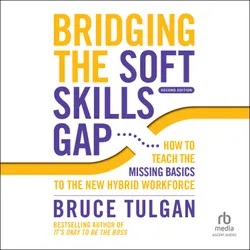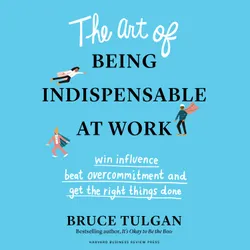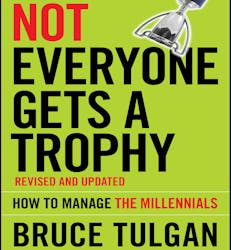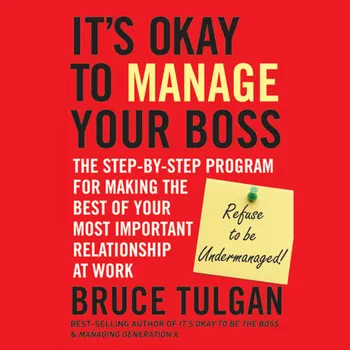Most employees today answer to multiple bosses at any given time, some directly, and others indirectly. Often employees are pulled in different directions by competing authority figures with competing interests, most of whom have the ability to help or to harm the employee's daily work conditions, rewards, and longer term career prospects. Employees are also working harder and facing increasing pressure to work longer, smarter, faster, and better, while adjusting to ongoing organizational changes working in smaller teams with greater requirements. Meanwhile, their managers provide much less guidance, direction, and support than their direct-reports need in order to succeed in today's high-pressure environment. In this follow-up to the bestselling It's Okay to Be the Boss, Bruce Tulgan shows that the number one factor in employee productivity, work-quality, morale and retention is the relationship between employees and their immediate managers. Unfortunately, he argues, we have been focusing so much on the skills and habits of the managers, that we have neglected the role of the employee in these relationships. In It's Okay to Manage Your Boss, Tulgan will first explore the 10 myths about how one should be managed and how to manage up that so-called experts and books have perpetuated over the years. After exploring these myths, he will help readers take responsibility for getting the following four essential things from their boss(es) in order to succeed at their job: Clearly spelled out and reasonable expectations (that is, clear goals with specific guidelines and a concrete timetable to accomplish them). The skills, tools, and resources necessary to accomplish those expectations, or else the acknowledgement that you are being asked to achieve those expectations without the skills, tools, or resources that you need. Accurate and honest feedback about your performance as well as course-correcting direction when necessary. A fair quid pro quo--recognition and rewards--in exchange for your performance.
It's Okay to Manage Your Boss : The Step-by-Step Program for Making the Best of Your Most Important Relationship at Work
Empieza hoy con este libro por 0 €
- Disfruta de acceso completo a todos los libros de la app durante el periodo de prueba
- Sin compromiso, cancela cuando quieras
Autor/a:
Narrador/a:
Idioma:
Inglés
Formato:

Not Everyone Gets a Trophy : How to Bring Out the Best in Young Talent, 3rd Edition

Bridging the Soft Skills Gap : How to Teach the Missing Basics to the New Hybrid Workforce (2nd Edition)

No todo el mundo merece un trofeo : Cómo liderar millennials de manera efectiva

Los 27 retos que enfrentan los directivos : Soluciones graduales a casi todos sus problemas gerenciales

The 27 Challenges Managers Face : Step-by-Step Solutions to (Nearly) All of Your Management Problems

It's Okay to Be the Boss : The Step-by-Step Guide to Becoming the Manager Your Employees Need

The Art of Being Indispensable at Work : Win Influence, Beat Overcommitment, and Get the Right Things Done

Not Everyone Gets A Trophy : How to Manage the Millennials, Revised and Updated
